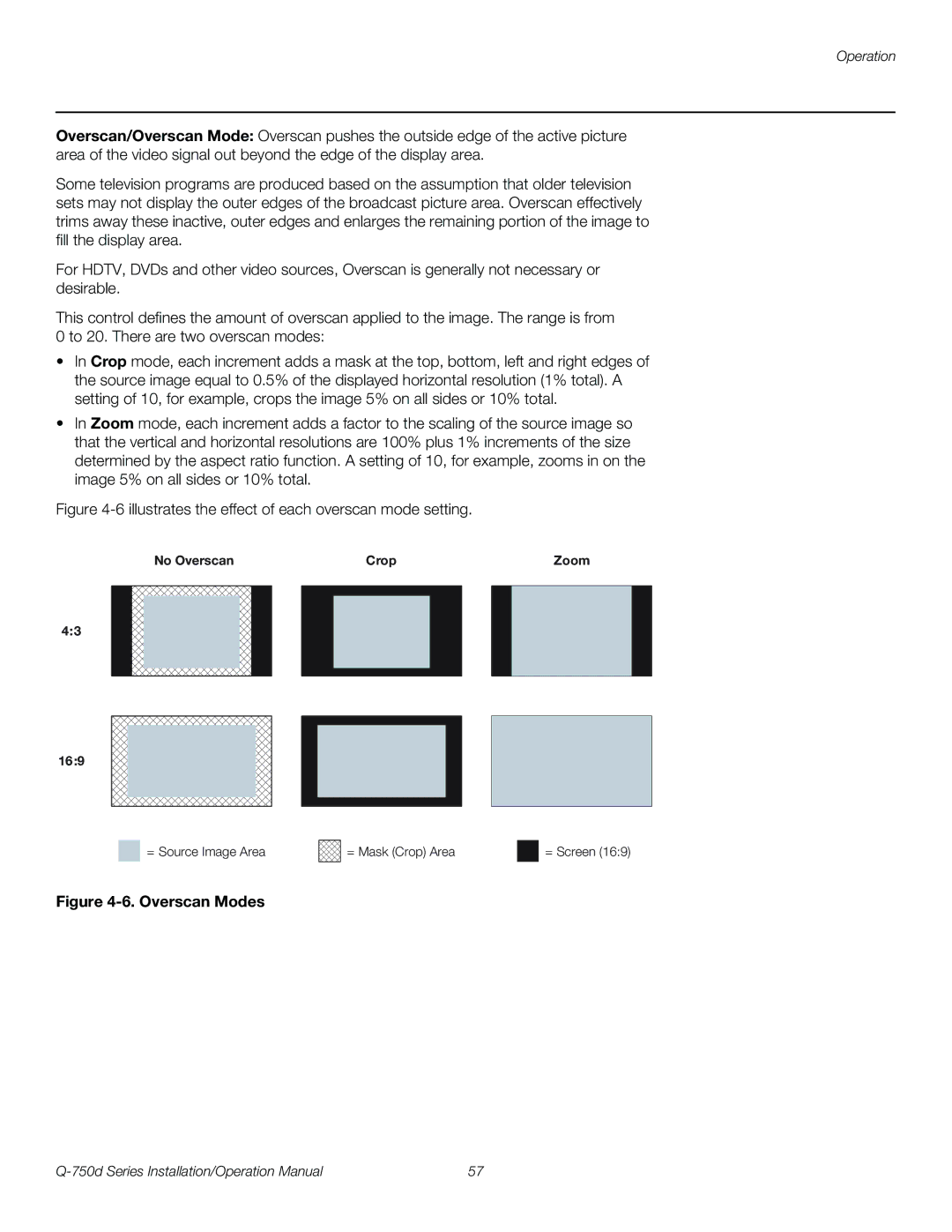
Operation
Overscan/Overscan Mode: Overscan pushes the outside edge of the active picture area of the video signal out beyond the edge of the display area.
Some television programs are produced based on the assumption that older television sets may not display the outer edges of the broadcast picture area. Overscan effectively trims away these inactive, outer edges and enlarges the remaining portion of the image to fill the display area.
For HDTV, DVDs and other video sources, Overscan is generally not necessary or desirable.
This control defines the amount of overscan applied to the image. The range is from
0 to 20. There are two overscan modes:
•In Crop mode, each increment adds a mask at the top, bottom, left and right edges of the source image equal to 0.5% of the displayed horizontal resolution (1% total). A setting of 10, for example, crops the image 5% on all sides or 10% total.
•In Zoom mode, each increment adds a factor to the scaling of the source image so that the vertical and horizontal resolutions are 100% plus 1% increments of the size determined by the aspect ratio function. A setting of 10, for example, zooms in on the image 5% on all sides or 10% total.
Figure 4-6 illustrates the effect of each overscan mode setting.
No Overscan | Crop | Zoom |
4:3
16:9
![]() = Source Image Area
= Source Image Area
= Mask (Crop) Area |
| = Screen (16:9) |
|
|
|
Figure 4-6. Overscan Modes
57 |
